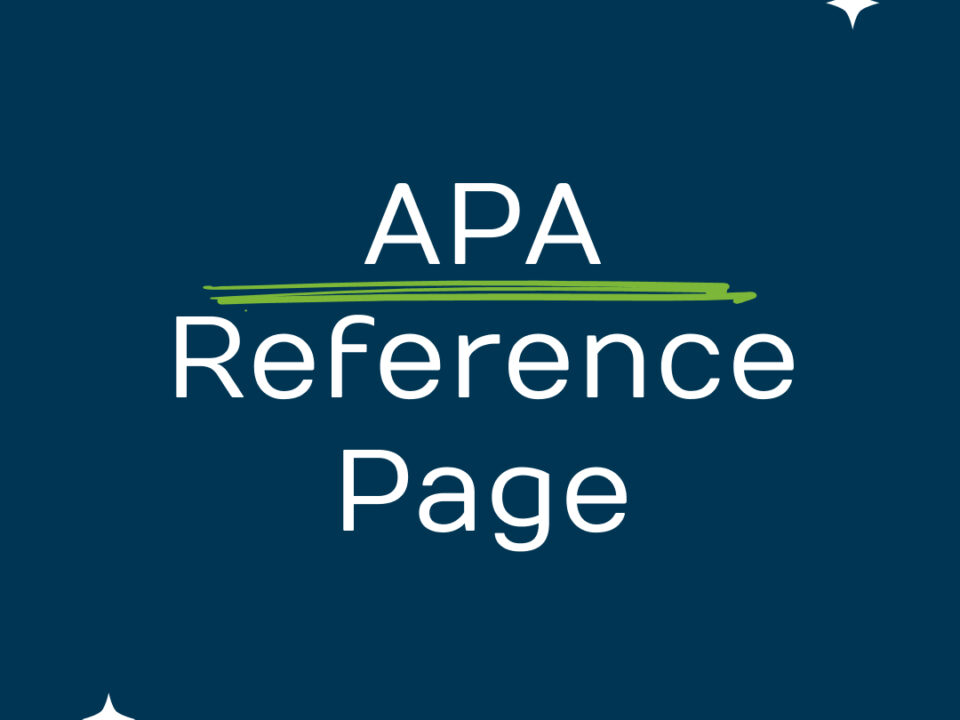
Why plagiarism affects the credibility of researchers?
June 15, 2020
Unveiling the Mystery: How to Get Your Research Published in ISI Journals?
June 19, 2020Last updated on December 24th, 2024 at 07:38 pm
Co-author participation services allow individuals to actively contribute to developing and creating diverse literary works, making them highly valuable. This service allows individuals to collaborate with recognized authors and share their unique viewpoints, thoughts, and knowledge. The Co-Author Participation services facilitate the smooth integration of many perspectives, leading to a comprehensive and enhanced end product. This program allows budding writers to get essential experience and recognition, while veteran authors can benefit from novel ideas and viewpoints.
An essential benefit of Co-Author Participation services is the chance for budding writers to obtain help and mentorship from seasoned authors. This service facilitates the acquisition of knowledge and abilities in writing and the publishing industry through interactions with experienced experts. Co-author participation services provide a platform for writers to demonstrate their skills and build their reputation by collaborating with well-known authors and contributing to developing exceptional literary works.
In addition, the Co-Author Participation services actively foster inclusivity and diversity within literature. These programs promote the representation and celebration of many perspectives and voices by actively soliciting and embracing contributions from a broad spectrum of persons. This inclusive methodology enhances the result and generates prospects for marginalized writers to enter the field and make significant contributions. Co-author participation services are an effective instrument for promoting collaboration, creativity, and cultural interchange among literary community members.
Co-author participation services offer a platform for active involvement in developing literary works, allowing prospective authors to learn and develop their skills under the direction of seasoned professionals. This service fosters inclusivity and diversity in the literary realm, leading to comprehensive and enhanced results. Co-author participation services actively involve persons from all backgrounds, thereby contributing to the progress and development of the literary community.
Co-author Participation services are vital in collaborative writing, enabling individuals to work seamlessly on a single manuscript. This novel method seeks to optimize the writing process, guaranteeing effectiveness, precision, and increased efficiency. Co-author participation services facilitate teamwork, encourage collaboration, and enable joint success in academic, corporate, and other collaborative writing contexts.
The main goal of Co-Author Participation services is to offer a comprehensive platform that enables numerous writers to collaborate on a document simultaneously, regardless of their geographical location. This prevents the necessity for protracted email correspondences or the inconvenience of overseeing numerous document iterations, as all participants can actively engage in the writing process. These services improve communication by allowing authors to collaborate in real time, reducing delays and enabling seamless coordination.
Co-author participation services offer a significant advantage by enabling effective version control and maintaining coherence during the writing process. It allows authors to observe and monitor modifications made by their colleagues, facilitating the integration of suggestions, offering comments, and ensuring uniformity in style and tone. This greatly diminishes the likelihood of duplication, redundancy, or opposing concepts within the page, resulting in a coherent and polished work.
One additional benefit of using Co-Author Participation services is the opportunity to harness team members’ varied skill sets and knowledge. Collaborative writing enables authors to contribute their distinct viewpoints, expertise, and insights, leading to a full and well-rounded piece that spans a broader range of topics. By collaborating, the document’s overall quality is enhanced, guaranteeing that it adheres to the highest standards and effectively fulfills its intended purpose.
In addition, Co-Author Participation services facilitate openness, accountability, and efficient project management. By documenting and attributing all modifications and contributions to certain authors, assigning accountability, assessing advancement, and upholding a comprehensive understanding of the project becomes simpler. This facilitates effective workflow management, enabling team leaders to oversee the process, pinpoint obstacles, and assure timely completion of tasks without compromising the quality of the content.
Co-author participation services are essential tools that enable collaborative writing and improve teamwork, productivity, and the overall excellence of the final content. These platforms facilitate seamless collaboration among authors by offering a platform for real-time cooperation, version control, and harnessing the aggregate experience of team members. This results in coherent, complete, and polished writing. Co-author participation services are highly beneficial for achieving joint achievement in professional contexts, whether for academic research, commercial projects, or any other collaborative writing endeavor.
Advantages of Co-Author Participation:
1. Varied Proficiency and Viewpoints:
A significant benefit of Co-Author Participation is integrating varied experiences and perspectives. Collaboration among several writers entails integrating their distinct knowledge, experiences, and talents into a project. This diversity facilitates a more exhaustive topic analysis, guaranteeing that multiple facets are meticulously investigated. Co-authoring fosters a synergistic atmosphere in which authors may mutually benefit from each other’s expertise and explore themes from many perspectives, leading to a more comprehensive and refined result.
2. Co-authoring can greatly augment the legitimacy and prominence of a publication
Collaboration amongst prominent specialists or scholars lends credibility to work within the academic community. Collaboratively written publications frequently garner greater attention, leading to a rise in citations and a higher impact factor. In addition, the involvement of numerous authors in a publication can enhance its dissemination and visibility, as each author contributes to their network of readers, followers, and colleagues. The enhanced visibility can result in partnerships, conference invitations, or further professional growth prospects.
3. Co-author participation offers the benefit of shared tasks and enhanced time efficiency
Producing a thorough research paper or book can be a formidable undertaking, necessitating lengthy investigation, examination, and composition. Distributing the workload among co-authors makes the procedure more feasible and expedited. Each author can concentrate on their designated portions, optimizing their productivity and specialized knowledge. Co-authoring facilitates concurrent collaboration on several project components, optimizing the overall schedule and minimizing the time required for project completion.
4. Enhanced Accountability and Quality Assurance
The involvement of many writers in Co-Author Participation reinforces accountability and adds an extra level of quality control. Every author is accountable for their designated areas, guaranteeing that no aspect is disregarded or disregarded. The collaboration promotes a culture of peer evaluation inside the team, enabling authors to offer feedback, recommendations, or corrections to enhance the overall excellence of the work. This collective accountability ensures the maintenance of elevated standards and prevents the oversight of individual prejudices or mistakes. The collaborative endeavor guarantees that the result is more rigorous and reliable.
5. Co-author participation provides individuals with opportunities for personal and professional development
Engaging in collaboration with diverse individuals promotes the cultivation of cooperation, communication, and negotiation aptitudes. Authors acquire the skill of understanding and managing many viewpoints, collaborating harmoniously to accomplish a shared objective. Furthermore, co-authorship allows authors to broaden their professional network and forge links with other specialists in their respective domains. Networking can facilitate additional research collaborations, mentorship prospects, or collaborative initiatives, promoting ongoing professional development and progress.
To summarize, Co-Author Participation offers numerous benefits to writing and publication.
It promotes cooperation, incorporates a range of specialized knowledge, boosts credibility, and enhances the overall quality of the work. Furthermore, the distribution of tasks, improved productivity, and potential for individual development render co-authoring a highly advantageous method. Given the increasing significance of interdisciplinary research and the value of many viewpoints, co-authors’ involvement is not only a pragmatic decision but also advantageous for both authors and readers.
to read more:Advantages of Co- authoring Participation
How Co-Author Participation Optimizes the Writing Process: The Methods and Techniques
Writing is frequently a solitary pursuit, as authors dedicate extensive periods to meticulously shaping their thoughts, ideas, and arguments into cohesive compositions. Nevertheless, the advent of Co-Author Participation has introduced a novel aspect to the writing process, which enhances efficiency, ingenuity, and overall production. This blog article will explore the strategies and tactics by which Co-Author Participation enhances the writing process.
Collaboration is essential in every successful joint undertaking. Through participating in dynamic dialogues and collaborative idea generation, authors can merge their distinct viewpoints, personal encounters, and specialized knowledge to produce a more exhaustive and multifaceted written work. The process of collaboration not only enhances the material but also assists in refining the thoughts and arguments put forth. By engaging in productive discussions and offering constructive critique, co-authors have the opportunity to question each other’s preconceptions and biases, resulting in a final output that is more objective and logically sound.
In addition, Co-Author Participation enables a distribution of tasks that can greatly improve the effectiveness of the writing process. Co-authors can optimize their collaboration by dividing duties such as research, outlining, drafting, and editing, allowing them to work concurrently on distinct aspects of the piece, resulting in time and effort savings. The allocation of tasks based on individual talents enables each Co-Author to contribute their specialized knowledge and abilities to the writing process. For instance, one Co-Author may possess exceptional skills in performing comprehensive research, while another may demonstrate a talent for creating captivating openers or conclusions. This specialization finally guarantees a superior standard of work.
Co-author participation provides excellent peer review opportunities and facilitates the division of labor. As authors, we may occasionally develop excessive fondness for our writing, hindering our ability to identify flaws or areas that should be enhanced. Through the involvement of a co-author, we can obtain valuable insights and pinpoint any overlooked weaknesses by receiving constructive feedback and critiques. This feedback loop improves the writing’s quality and promotes personal and professional development as co-authors gain insights from each other’s strengths and limitations.
Accountability is another crucial feature of Co-Author Participation. When working in solitude, succumbing to procrastination or developing a sense of complacency is effortless. Nevertheless, while engaging in a collaborative effort with a co-author, there exists a feeling of obligation and shared dedication to adhere to deadlines and provide work of exceptional quality. This sense of accountability is compelling, ensuring that authors remain concentrated, self-controlled, and committed to the writing process. Engaging in proactive communication and conducting regular check-ins can enhance the ability of co-authors to remain focused and sustain progress.
Furthermore, the involvement of co-authors can significantly enhance the reach and influence of the written work. Through collaboration with another author, writers can use their respective networks and merge their circles of influence. The expanded scope of readership not only enhances the probability of the written work being accessed by a wider audience but also creates prospects for future collaborations. Co-participation offers a forum for authors to demonstrate their skills and promote themselves as influential figures in their respective disciplines.
Unveiling the Mystery: How to Get Your Research Published in ISI Journals?
To summarize, Co-Author Participation enhances the writing process by facilitating cooperation, dividing tasks, conducting peer review, ensuring accountability, and expanding the audience reach. Through the utilization of co-authorship, authors can augment the caliber, effectiveness, and influence of their writing. Co-author participation employs a systematic strategy that promotes collaboration, innovation, and a collective sense of responsibility, leading to stronger and more captivating literary works.
Co-Author Participation in Academia: How These Services Support Academic Research
Collaboration is essential in advancing research and writing initiatives in the constantly changing realm of academia. An example of a method for collaboration is via participating as co-authors. Co-authoring entails the collaborative effort of numerous individuals, who pool their knowledge, ideas, and viewpoints to contribute to a research project or academic publication. The advent of several co-authoring platforms in recent years has significantly transformed how academics work, simplifying and enhancing efficiency to an unprecedented degree. This blog article will examine how these services facilitate academic research and writing endeavors.
Enabling Collaboration
Co-authoring services offer a forum for scholars from diverse institutions and fields to establish connections with one another. This promotes a more extensive interchange of knowledge, ideas, and views, ultimately enhancing the caliber of research. These platforms facilitate researchers in establishing connections and identifying potential co-authors who possess comparable research interests and competence. The capacity to collaborate with persons from many backgrounds amplifies the depth of the research and introduces novel perspectives and methodologies.
Enhanced Workflow Efficiency
Co-authoring services provide a streamlined workflow for academic assignments, hence increasing the efficiency of the research and writing process. These systems include features for synchronous collaboration, enabling multiple authors to work together on a document in real time, reducing the need for frequent communication and saving time. Version control capabilities provide the effortless monitoring of modifications, guaranteeing a consistent result. Furthermore, these services frequently provide task management capabilities, facilitating efficient coordination and punctual achievement of various project objectives.
Co-authoring services offer a notable chance for co-authors to share their specialized knowledge and valuable resources. Engaging in collaboration with persons who possess diverse skill sets or have access to distinct data sets allows researchers to harness their combined expertise and expand the range of their research. Moreover, these services frequently grant entry to academic databases, libraries, and research repositories, exchanging pertinent scholarly resources among co-authors.
Quality Assurance
Co-authoring services enhance the academic work standard by incorporating peer review and editing functionalities. These platforms facilitate co-authors in offering constructive criticism on one another’s writing, so improving the overall quality of the study result. The inclusion of several reviewers aids in mitigating biases and errors, hence yielding study findings that are more resilient and dependable. Furthermore, co-authoring platforms frequently incorporate citation management features, aiding co-authors in following correct citation requirements and fostering academic honesty.
Facilitating Collaboration Across Borders
Co-authoring services are essential for fostering collaboration across geographical borders. By surpassing the constraints of physical boundaries, these platforms facilitate the interaction of researchers with scholars from other countries and institutions worldwide. Engaging in cross-cultural collaboration not only allows for the inclusion of many viewpoints but also enables the widespread distribution of research on a global level. The globalizing academic collaboration extends the scope of study and cultivates a feeling of community and interconnection among scholars.
Co-authors’ involvement in academic research and writing has significantly transformed the field, thanks to the emergence of co-authoring services. These services have become essential tools in the academic community since they facilitate academic collaboration, improve workflow efficiency, enable expertise sharing, and ensure quality assurance. As academia increasingly embraces collaboration and creativity, co-authoring services will continue to strengthen, simplifying academic research undertakings and advancing the progress of knowledge and discovery.
For further information, please get in touch with us.
WhatsApp: +4581901285
Email for connect to us for Co-Author Participation services:


